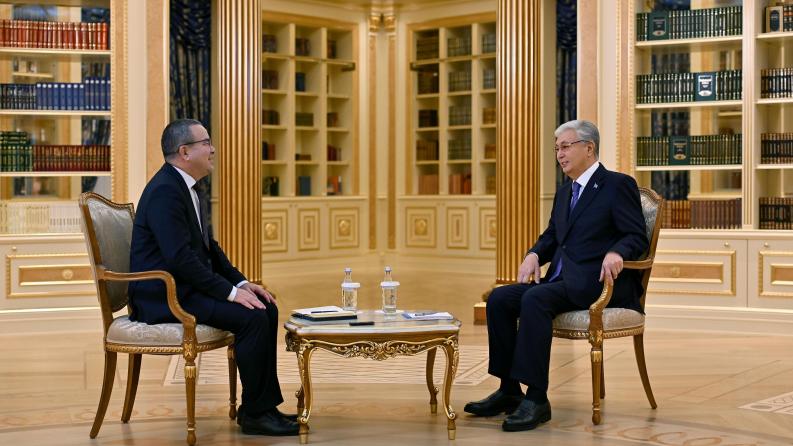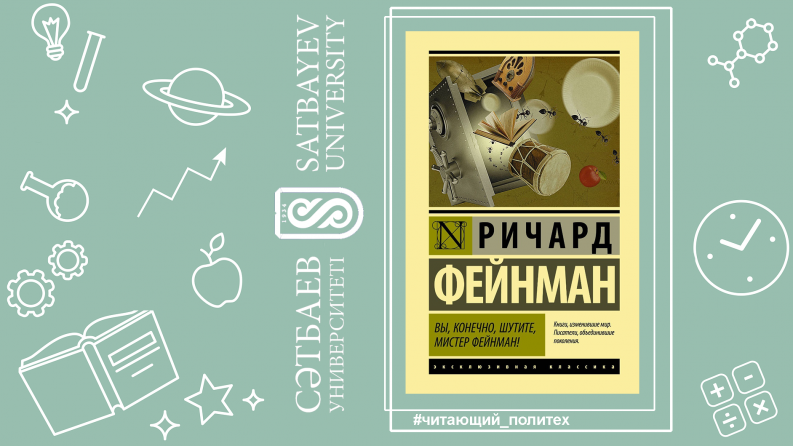Professor Simon Thompson: "We see Satbayev University as a partner open to cooperation and innovation"

Satbayev University was visited by Professor Simon Thompson, head of School of Education at Sussex University (UK), who conducted a workshop for university teachers "Does Differentiation Mean Different?" dedicated to inclusive education. Professor Thompson shared his opinion on education in Kazakhstan and the prospects of Satbayev University students.
Question: What is your mission in the academic field?
Answer: One of my professional areas of interest is education. As Deputy Vice-Rector for International Affairs, I am also interested in developing the new partnerships between universities. And if we already have a relationship with a university, I try to understand how we can strengthen it and make sure that both sides benefit from each other. This is the reason for my visit to Kazakhstan and, in particular, to Almaty.
Is this your first time here?
No, this is my sixth visit to Almaty. My colleagues from the UK and I worked a lot here in 2015-2016 as part of the reform of the teacher education system in Kazakhstan. We helped to implement a system of education in three languages – Kazakh, Russian and English – in STEM disciplines. At that time, the main difficulty was the lack of language training for teachers. Students could study in English, but it was difficult for teachers to give lectures on chemistry, biology or physics without knowing the language. Therefore, the project turned out to be difficult and was not continued.
The second question: you said that you like Almaty. Why? What caught your attention?
– First of all, I must say that Kazakhstan is a little-known country for most people in the UK. People either don't know anything about Kazakhstan, or they have a completely wrong idea. I've been lucky enough to visit here eight times already, and this is my fifth time in Almaty. And I see how much Kazakhstanis and residents of Almaty value education, how much they invest in it. Everywhere I look, universities are everywhere – it's a real university city. Besides, it's a very beautiful place. I used to always come here in winter – it was dark, it was snowing, and even then the city looked great. But coming in the fall is a completely different experience. I see the other side of Almaty, and it's very nice.
Today you conducted a workshop for teachers. How would you formulate the main question of your speech?
Today we talked about education. I think I am particularly impressed by the dedication to the idea of education in Kazakhstan. When I first came here, education was declared a priority at the state level, but it was more of an intention. And over the past ten years, I have been observing how this goal is being realized. Of course, no education system is perfect, there is always room for improvement. But the sustainable development goal of "Quality education" has really been developed here. Even during my short visit, I can see that this is not just a slogan at your university, but a real line of work. Today I wanted to encourage the audience to think: what role does a teacher play in promoting the quality education? What should a teacher know and be able to contribute to this?
What do you think about the work of Kazakhstani universities in the given field?
I can't judge everyone, but I can clearly see that this is a real priority for your university. This can be seen both in the curricula and in the way teaching is structured. I think we can say that quality education is really at the center of attention, and this is reflected in the way teachers interact with students.
How do you see the future of education in our country? Can we build a better future for students in Kazakhstan?
I see here a clear commitment to trilingual education – recognition of the value of the Kazakh language, the importance of Russian, as well as the English language potential. The translation of curricula into English allows students to be competitive, interact with other countries, and participate in international educational, cultural, and economic processes. This is certainly a strong point of the system.
You said that Kazakhstan is little known in England and the USA. And will our students be able to be successful if they go to study or work there?
Yes, of course. Students from Kazakhstan have already studied at our university. Kazakhstan may be unknown to ordinary Britons, but interest in your country is growing in academic circles. More and more UK universities are paying attention to Kazakhstan and Central Asia. For example, two years ago, when I flew here, there were only 50 people on board. And when I arrived this Sunday, the plane was full – and most of them were not Kazakhstanis, but foreigners, many from the UK. This indicates a growing interest in your country.
And if we talk about young professionals who want to work in England or the USA, what their prospects are?
Currently, the UK is not interested in accepting people without qualifications. The country is looking for specialists with a high level of professional knowledge and skills in IT, engineering, medicine and other high–tech fields. And as a teacher, I would like to emphasize that the world really needs good teachers. If Kazakhstan trains strong teachers and professionals, opportunities open up for them to teach in England, Australia, India – wherever international campuses of British universities open. And I am sure that graduates from Kazakhstan will be able to prove themselves and benefit the world.
You spoke to the faculty today, but what would you like to tell the students?
I always say that the opportunity to study at the university is a huge privilege. If you are given this opportunity, you need to make the most of it. As you get older, you begin to realize how many incredible opportunities university offers – and often this realization comes too late. Therefore, I would advise students to value every moment of their studies: not only attend lectures and seminars, but also participate in university life, join student communities, engage in volunteerism, and use all additional opportunities. After all, education is given once in a lifetime, and it is important to make full use of this chance.
Simon Thompson is a senior academic fellow at University of Sussex (UK), Professor of pedagogy, a globally recognized expert in teacher training, and National Teaching Fellowship, which he received for his excellent teaching practices and significant contributions to teaching and learning in higher education. Since 2025, he has been Deputy Pro-Vice-Chancellor (International) of Sussex University, responsible for the university's international relations. His visit to Satbayev University became part of the program to evolve international partnership and strengthen academic ties between leading universities in Kazakhstan and the UK.










